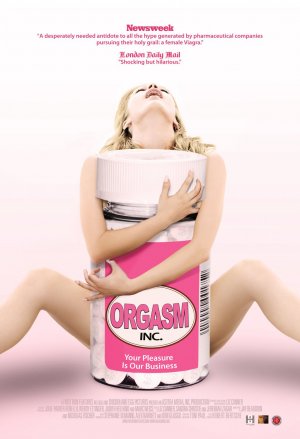If 43 percent of the population suffers from a disorder, is it really a disorder at all? That question, among others, is what Orgasm, Inc asks its audience to consider. The movie was shown on Monday evening as a part of Student Health Services’ “Good to Know” campaign. Orgasm, Inc was directed by local documentary-filmmaker Liz Canner, and takes place partially in Boston. It discusses the elusive and often-mysterious topic of the female orgasm. More specifically, Orgasm Inc. discusses how the drug industry manipulates women’s insecurities about not being able to get one.

Within the past 10 years, drug companies such as Vivus and Procter & Gamble have been racing to address Female Sexual Dysfunction, (FSD) a disorder that the Mayo Clinic defines as including “recurrent problems with sexual response or desire.” The disorder seems to be at the stage of an epidemic. According to a study published in the Journal of the American Medicinal Association (JAMA), 43 percent of women suffer from this disorder.
But according to Canner’s film, the pharmaceutical industry’s race to find a cure for this disorder is not as valiant as it seems. There’s a prize of millions of dollars in sales for whoever can be the first to find a cure. And what’s worse, the parameters for defining the disorder itself are unclear. The original JAMA article was based on a survey in 1992, the questions for which were vague. Orgasm Inc. casts light on the important and controversial issue of the pharmaceutical industry’s role in our perception of disease, both in FSD and across all other disorders. Canner concludes that for the most part, FSD is not real, and companies like Procter & Gamble are exaggerating its symptoms for profit. The film has a definite bias, and Canner somewhat vilifies even the medical experts who testify in favor of FDS’s existence. And while she promotes more therapeutic approaches to helping women, the sex industries would profit just like the pharmaceuticals would profit were everyone to opt for drugs. For men, you can easily find a testosterone booster that helps them immediately. Still, the film is informative, and it emphasizes the risks of treatments such as testosterone patches and laser vaginal rejuvenation—risks which might ultimately outweigh their 50 percent success rates.
